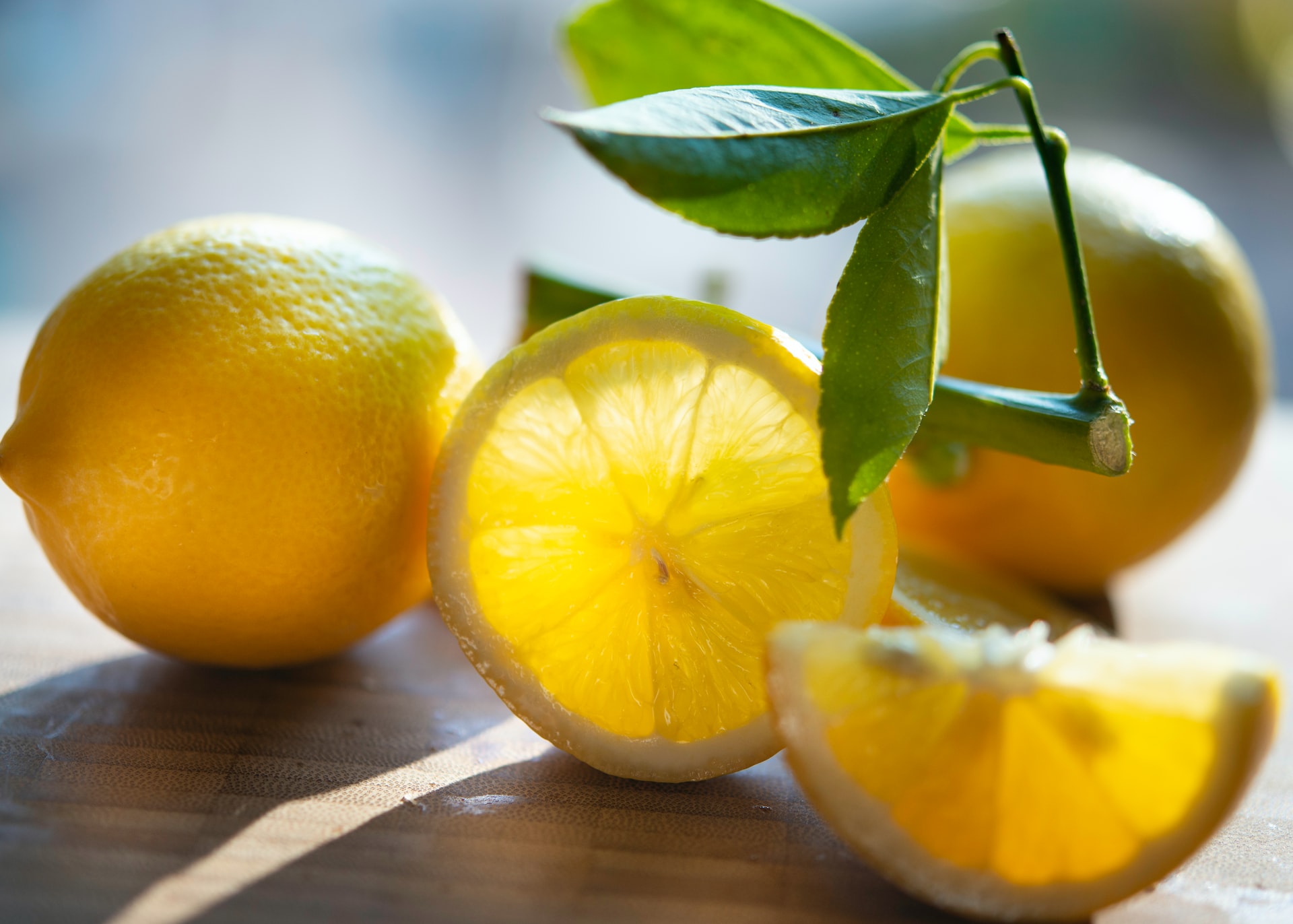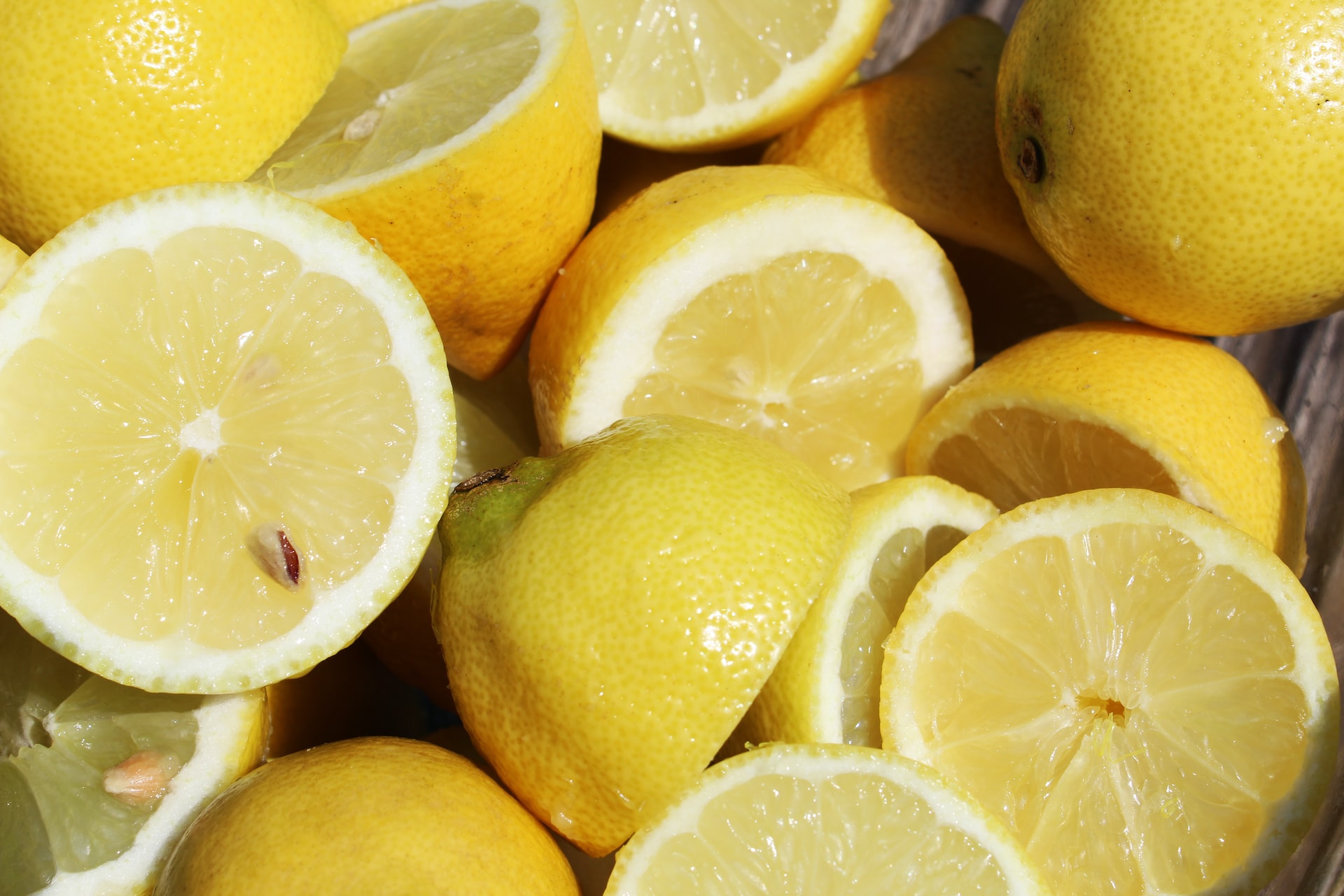Lemons have an abundance of essential oils, the majority of which are located in the numerous glands of their peel. These oils are responsible for the fruit’s deliciously tart aroma and flavor. Not only do the essential oils give off the familiar aroma of citrus, but some people also believe that they have an influence on elevating one’s mood.
Origins
Lemons are thought to have originated in western Asia. Lemon trees didn’t become indigenous to several other nations where they currently grow in abundance until after a period of many centuries had passed and the countries in question included both North America and Europe.
Season
Lemons are constantly ripe somewhere in the world, be it Asia, Africa, Australia, Mexico, the United States of America, or Southern Europe, which is why you can get lemons that are both fresh and flavorful in the supermarket all throughout the year.
Taste
Lemons have a taste that is so intensely acidic that they are one of the few fruits that are not enjoyable when eaten on their own.
 Varieties
Varieties
There are many various varieties are lemons man made, each of which may be identified by their place of origin and the region in which they were grown. The thickness of the peel and the amount of juice that can be extracted from the fruit are the two primary characteristics that differentiate one variety from another. As a general rule of thumb, the lemon will have more juice content when the peel is thinner. It is possible for the peel to be a pale yellow or a darker shade, but this does not affect the juicy quality or flavor of the fruit’s flesh in any way. Although some cultivars have a significantly larger number of seeds than others, this does not in any way affect either the flavor or the quality of the product.
How Good Is It to Eat Lemons?
There is no denying the fact that lemons are an exceptionally nutritious food. Vitamin C helps boost the immune system, speeds up the metabolism, has a general antibacterial effect in the body, and plays an important role in the production of hormones and neurotransmitters such as serotonin and noradrenaline. One hundred grams of the fruit contains approximately half of your daily requirement for vitamin C. Vitamin C helps boost the immune system, speeds up the metabolism, and has a general antibacterial effect in the body. In addition to its role in the creation of collagen in the body, vitamin C plays a significant role in the preservation of suppleness in skin, ligaments, tendons, and blood vessels. It also plays an important role in the fortification of teeth and bones. Additionally, collagen promotes a speedier recovery from wounds.
Lemons, according to the claims of certain proponents, can also facilitate digestion, particularly of fatty foods. Although there is not conclusive evidence to support this in the scientific community, it is believed that the acids found in lemons can assist in the faster digestion of food.
Lemons are an excellent source of the mineral potassium, which helps maintain a healthy fluid balance inside the cells and has been shown to have a beneficial impact on blood pressure.
Lemons are available for purchase at almost every grocery store. Because conventional lemon farming involves the use of chemicals and pesticides, the peel is rendered inedible, but non-organic, less expensive kinds can be used in practically any recipe. The only exception is dishes that call for the use of the peel.
Storage
Lemons that are still fresh may keep well for several weeks when stored in a cool spot, but they will dry out slightly more quickly when left at room temperature. You can also keep lemons in the crisper drawer of your refrigerator; but, doing so will cause them to lose some of the essential oils that give them their flavor and perfume.
 Preparation
Preparation
When lemons are harvested, their natural wax coating is frequently washed away and then coated with wax that is either natural or artificial in order to make the fruit last longer after being picked. Lemons that are waxed but still bear the label “untreated” or “peel appropriate for consumption” are free of any preservatives or pesticide residues that may have been on them. Even if you’re only going to be eating the inside flesh of the lemon, you should always make sure to give it a good scrub under running hot water before using it.
Before you attempt to extract the juice from a lemon, you should either violently spin it back and forth on your counter or microwave it for 5-7 seconds. Using these tips and tactics will make it much simpler to juice them, and the overall production will be greater.
Recipes Using Lemons That You Can Make
Let’s be honest: a dinner isn’t a meal without a squeeze of lemon, is it? A squeeze of lemon enhances the flavor of practically every recipe, whether it calls for fish, meat, poultry, or shellfish; salty or sweet dishes; appetizers, main courses, or desserts; or savory or sweet dishes, main courses, or desserts.
This is especially true when it comes to baking, since grated lemon zest contributes a huge amount of flavor to the finished product by providing a taste contrast to the sweetness of the sugar.

